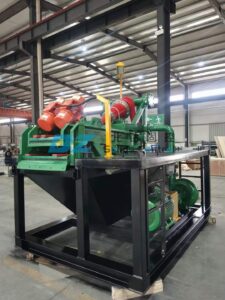What are the requirements for mud treatment of bored piles?
The problems caused by the mud treatment of bored piles have received more and more intense general attention. Along with the guiding trend of environmental protection policies, the requirements and standards for mud treatment of bored piles have increasingly strengthened more and more strict technical requirements and treatment measures.
 Most of the specific construction process of bored pile engineering is carried out underwater, and the entire construction process cannot be observed. Therefore, any problems in any link in the construction process will have serious problems that directly affect the quality of the entire project. In view of the large amount of mud produced in bored pile engineering, the mud pollution concentration is high, the composition is complex, and the pollution to the natural environment and human health is quite serious. Furthermore, if the mud of bored piles is not properly treated, it will also cause huge economic costs to the investors of the project. In view of the above reasons, the requirements for mud treatment of bored pile engineering are summarized as follows:
Most of the specific construction process of bored pile engineering is carried out underwater, and the entire construction process cannot be observed. Therefore, any problems in any link in the construction process will have serious problems that directly affect the quality of the entire project. In view of the large amount of mud produced in bored pile engineering, the mud pollution concentration is high, the composition is complex, and the pollution to the natural environment and human health is quite serious. Furthermore, if the mud of bored piles is not properly treated, it will also cause huge economic costs to the investors of the project. In view of the above reasons, the requirements for mud treatment of bored pile engineering are summarized as follows:
1) Requirements for carrying soil and slag discharge: One of the basic requirements for mud treatment of bored pile driving engineering is to take the broken rock and soil cuttings of the drill bit out of the borehole, so as to maintain the continuous process of drilling by the drill bit. When the mud circulation is temporarily interrupted, The mud can suspend the drill cuttings, so as not to sink quickly, and prevent the risk of sand sinking and sticking. During the positive circulation drilling, the mud suspends the drill cuttings and discharges them.
2) Requirements for cleaning the boreholes: In the construction of bored piles, after the holes are formed, the boreholes must be cleaned immediately. The purpose of cleaning the holes is to prevent the sedimentation of gravel and sand in the holes, so that the sedimentation will be larger than the specified amount. thickness. During the drilling process, the mud will take out the drill cuttings and flush them in a cycle, which cools and lubricates the drill bit. Thereby, the repeated breaking process of drill cuttings by the drill bit is also reduced, thereby reducing the wear of the drill bit.
3) Requirements for the arm guard: The effect of the drilling mud on the guard wall is particularly critical and important in the process of hole forming. The mud has a certain density, and the mud can fill and compact the pores in different soil layers in the drilled hole, forming a layer of dense mud with low water permeability, avoiding water leakage on the inner wall of the hole and maintaining a certain water pressure in the hole, which helps To maintain the stability of the hole wall. Regarding the situation of the mud arm guard, attention should also be paid to the specific indicators of the mud. During the drilling process, the specific gravity should not be too low, and before pouring, the specific gravity of the mud should be controlled not to be too large.
4) Requirements for reuse and waste reduction: The mud of bored pile driving engineering can be recycled, and the extracted mud can be used continuously after being treated by mud treatment equipment to reduce waste and construction cost.
5) Requirements for environmental protection: During the construction of bored piles, a large amount of mud will be generated. If it is not properly handled in time, it will cause serious environmental pollution! At present, the state has issued a series of policies and guidelines for environmental protection. In order to achieve zero discharge of waste mud, effective mud treatment measures must be taken.
In order to meet the many requirements of mud treatment for many bored pile engineering, it is very critical and important to choose a professional mud treatment equipment. BZ Solids Control is a professional manufacturer of mud dewatering equipment. The mud dewatering equipment produced can be widely used in: bored pile engineering, municipal building piling engineering, underground diaphragm wall construction (underground anti-seepage wall) small trenchless engineering and other fields. The types of mud dewatering systems that can be produced are: BZMS-60 (processing capacity 60m3/h); BZMS-100 (processing capacity 100m3/h); BZMS-120 (processing capacity 120m3/h); BZMS-150 (processing capacity 150m3 /h); including: construction piling mud dewatering system, drilling pile mud dewatering equipment, sand washing mud dehydrator, mud dehydrator, etc. Oilfield drilling mud dehydration treatment system, etc.
